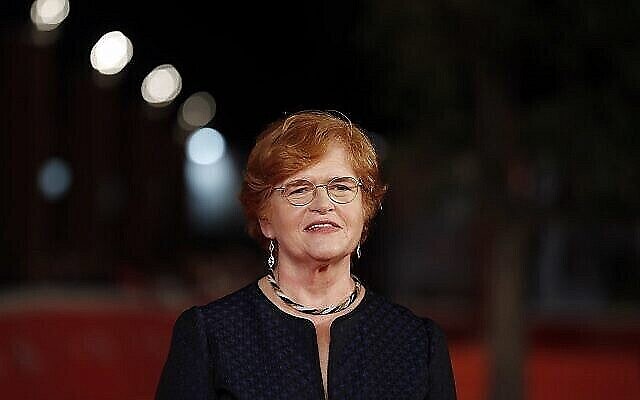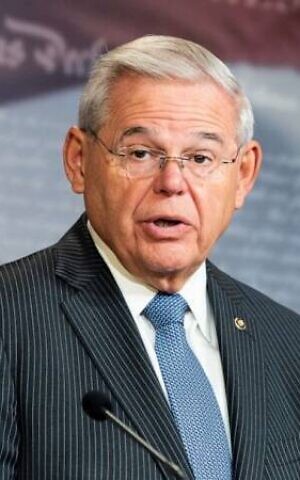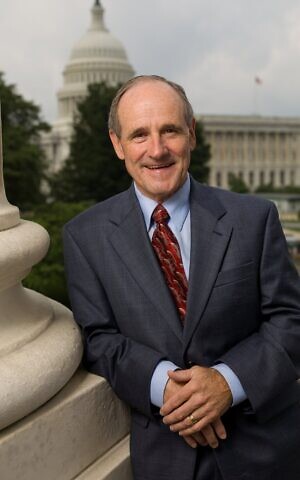Deborah Lipstadt Nomination Stalled in Senate
The nomination of the Emory University scholar to be the global envoy on anti-Semitism still awaits a confirmation hearing.

The nomination of Deborah Lipstadt to be the U.S. envoy to monitor and combat anti-Semitism has stalled in the Foreign Relations Committee.
Despite being nominated by Biden on July 30, the Emory University professor, renowned for her scholarship on the Holocaust and anti-Semitism, has yet to receive a confirmation hearing before the committee.
The ranking Republican member on the committee has expressed concerns about Lipstadt’s posts on Twitter. A number of diplomatic nominations have been slowed by Republicans who acknowledge seeking concessions from the Biden administration.
An individual familiar with the situation told the AJT: “Republicans have not let her go through despite her being eminently qualified and experienced in combatting anti-Semitism.”
The story was first reported on Nov. 3 by the news site Jewish Insider. The AJT has reached out to Lipstadt for comment.

On Nov. 4, the Anti-Defamation League, Jewish Federations of North America, and Union of Orthodox Jewish Congregations of America wrote to New Jersey Sen. Bob Menendez and Idaho Republican James Risch, the chair and ranking minority member of the Foreign Relations Committee, “to urge you to immediately hold a hearing” on Lipstadt’s nomination.
The letter went on to say: “Congress acted courageously and wisely when it created the post of the Special Envoy in 2004 and did so again in 2020 when it elevated the post to ambassadorial rank. There is no question that Prof. Lipstadt has the credentials to deserve a proper hearing before the Committee on Foreign Relations — and that hearing is now overdue.”
Nominees generally are discouraged from speaking to news media during the confirmation process, but on Nov. 4 Lipstadt posted on Twitter, “Very grateful for this show of support.”
During a Nov. 3 business session of the Foreign Relations Committee, Menendez said: “And then there is [the] nominee to be the special envoy for anti-Semitism. The minority has refused to grant her a hearing, apparently because there is some concern about her tweets calling out the use of anti-Semitic tropes. Let’s think about that [for] a minute. We don’t want the person nominated to advance our global efforts against anti-Semitism to call out anti-Semitism? I sincerely hope that’s not the position of the minority and that we can move these nominees forward expeditiously.”

Menendez asked Risch to agree to hold hearings for several nominees, including Lipstadt, the week of Nov. 15. Risch said that Republicans were working “in good faith” on the nominations put before the committee.
Risch told Jewish Insider on Nov. 3: “She has said enough things on Twitter that it needs to be reviewed carefully — particularly about members of the committee, which is always quite sensitive. So we’ll get through that … You’re going to see them all, I suspect, before it’s over with.”
The AJT has sought comment from Risch as well as Missouri Republican Sen. Josh Hawley, who was identified by Jewish Insider as holding up several nominations. Other Republican Senators identified by JI as using their senatorial privilege to slow the confirmation process included Ted Cruz of Texas and Marco Rubio of Florida.
During the Nov. 3 committee meeting, Maryland Democrat Ben Cardin, who is Jewish, said of Lipstadt: “She is so well thought of in the general community, as well as the Jewish community, in her long-standing efforts to stop the scourge of anti-Semitism. … Leaving them [ambassadorial positions] vacant is not in our national security interest … I certainly hope that Deborah Lipstadt is on the next hearing list so that we can move forward on our commitment to fight anti-Semitism.”
Previous anti-Semitism envoys did not require Senate confirmation, but the position was elevated in January to ambassadorial status.
The nomination of Thomas Nides to be the U.S. Ambassador to Israel had been stalled, but was approved on a voice vote by the full Senate on Nov. 3.
Atlantan Michèle Taylor was nominated Oct. 21 by President Joe Biden to serve as the United States Ambassador to the United Nations Human Rights Council. Her nomination, made nearly three months after Lipstadt’s, also awaits the scheduling of a confirmation hearing.
- Deborah Lipstadt
- Foreign Relations Committee
- Emory University
- Anti-Semitism
- holocaust
- Republicans
- Biden administration
- Anti-Defamation League
- Jewish Federations of North America
- Union of Orthodox Jewish Congregations of America
- New Jersey Sen. Bob Menende
- Idaho Republican James Risch
- Maryland Democrat Ben Cardin
- Thomas Nides
- U.S. Ambassador to Israel
- Michele Taylor
- News
- Local
- politics



comments